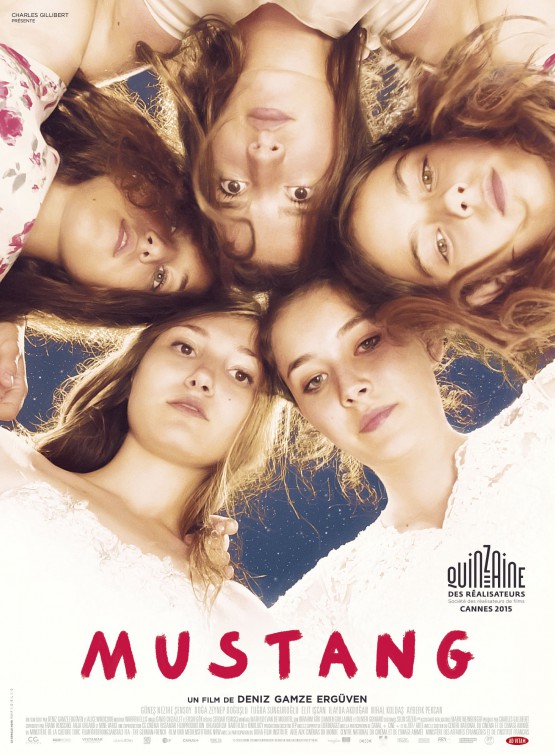Turkish-born French filmmaker Deniz Gamze Ergüven’s feature film debut Mustang is extremely impressive in its ability to portray, in extreme beauty, the allegorical atrociousness of life for five young sisters in rural Turkey.

Their imprisonment within their own home begins as a precautionary measure, taken to keep the girls innocent in the eyes of the village and train them to become cooking, cleaning, “shit-colored-dress” wearing super-wives. But what starts out as a “wife factory” soon becomes a compound, building up its defenses against the sisters’ sexuality and their desires to explore the outside world. Eventually, Selma and Sonay are married off and, from there, the remaining sisters’ situation is only worsened.
Comparisons have, unsurprisingly, been made between Mustang and Sofia Coppola’s 1999 debut The Virgin Suicides, a film (based on a 1993 novel) that also follows five young sisters whose home becomes their prison. While these comparisons are absolutely valid (right down to the warm and bright lighting that both Coppola and Ergüven employ), a case could also be made that these are both merely poetic representations of female adolescence and that the stylistic choices made reflect that perfect cocktail of childhood frustration, hope, and – for some of each film’s sisters more than others – sexual awakening.

Mustang is simultaneously an intimate story of young girls in their home and an extremely all-inclusive tale of female strife in Turkey. Or you could go even further and say that it serves as a representation of negative treatment of women in any culture. Although, to be honest, I would prefer to go all the way and see the film as a brilliant indictment of tradition itself and, therefore, Mustang also serves as a cry for the human race to evolve.

| Producer: | Charles Gillibert |
| Release Date: | January 29, 2016 |
| Starring: | Güneş Şensoy, Doğa Doğuşlu, Elit İşcan, Tuğba Sunguroğlu, and İlayda Akdoğan |
| User Rating: | |
| Writer: | Deniz Gamze Ergüven and Alice Winocour |
| MPAA Rating: | PG-13 |
| Director: | Deniz Gamze Ergüven |
| Distributor: | Cohen Media Group |
| External Info: |
